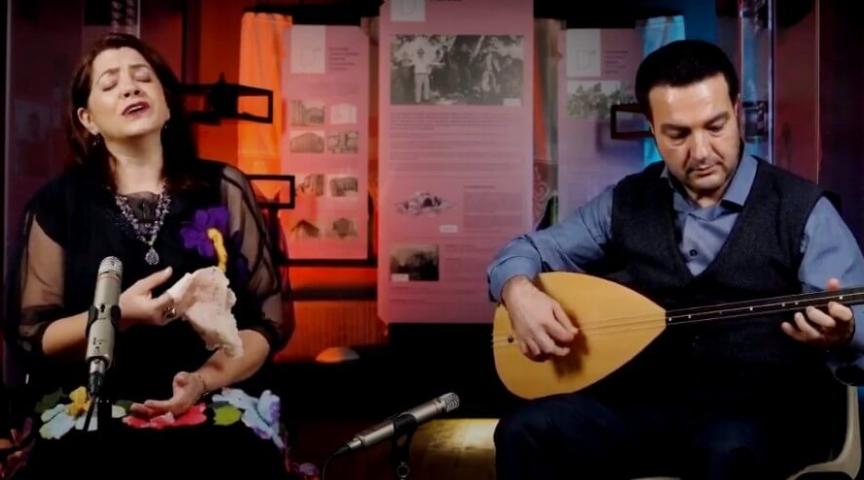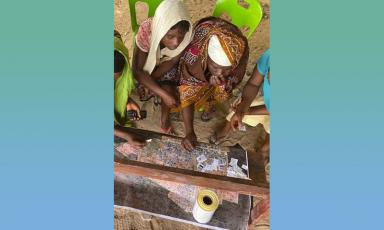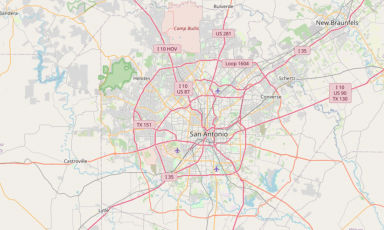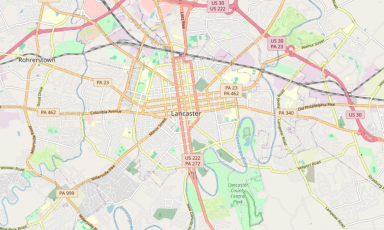Nilüfer Municipality, Turkey
Nilüfer Municipality’s “House of the Exchange of Populations” Museum: Promoting Cultural Diversity and Co-existence by Preserving Social Memory

Summary
The Municipality of Nilüfer commits to promote cultural diversity and co-existence through the "House of the Exchange of Populations" museum. Founded by the municipality and local associations, this museum commemorates the displacement of 1.5 million people following the Treaty of Lausanne in 1923 and preserves the history and folk culture of the region's communities.
Nilüfer is home to diverse cultural identities stemming from historical displacement in the region and Balkan immigration. The museum champions cultural diversity, enriches local understanding of differences, encourages social harmony and participation in cultural, political, and artistic movements, especially by civil society and women’s groups. It facilitates exchanges between people affected by war and forced migration in Turkey and in Greece, and provides a space that questions nationalistic approaches while allowing for discussions on identity, personal and collective memory.
The municipality hosts biannual anniversary events, fostering dialogues on topics like memory, identity, and cultural rights. In 2022, an event was hosted to commemorate the 1923 Great Exchange. It gathered 5 thousand people, including migrants from all over Turkey. The Mayor publicly acknowledged migrants’ and refugees’ communities’ invaluable contributions to economic change, social and cultural transformation in Turkey.
Impact
Through the House of the Exchange of Populations, Nilüfer municipality combines historical and anthropological research, architectural planning, technical infrastructure and museological methodology to promote cultural diversity and coexistence of its communities, by enriching the local appreciation of differentiation, among other social and spatial implications of the historic involuntary migration from and to the municipality. Pursuing non-nationalistic and international academic scholarship, the museum serves as a permanent point of reference for the study of history, folk culture and migrant identity formed within Nilüfer, to the broader public within and beyond the Bursa district. It mobilises this scholarship towards influencing the cultural policy of the municipality to focus more tangibly and assertively onto the protection of cultural heritage and the promotion of cultural diversity and knowhow by way of democratic participation and inclusion of distinct groups.
Collaterally, visits to the House of the Exchange of Populations by the delegations of regional and local leaders constitute a key element of the programmes of the biannual exchange anniversary events. These cultural events provide spaces for academicians, civil society and local governments to discuss the history and implications of population exchange in Bursa. Such events empower the participating diverse residents of Bursa to contemplate on issues such as memory, identity, local culture, national boundaries, human and cultural rights, as well as on their importance for the development of their region.
The 2022 Great Exchange Meeting hosted by Nilüfer Municipality on the 99th anniversary of the Lausanne Peace Treaty gathered nearly 5 thousand persons, including migrants, especially Rumelian and Balkan immigrants from all corners of Turkey. The Mayor and the MP of Bursa publicly acknowledged the migrant and refugee communities’ invaluable contributions to economic change, social and cultural transformation in Turkey.
The museum and cultural events also hope to bolster the agency of participating CSOs and associations, especially women’s associations of Nilüfer, for the expression of their own cultural identity.
Lessons learned
The House of the Exchange of Populations is visited regularly by descendants of people affected by the Population Exchange (war and forced migration) of 1922-1923, by inhabitants of Nilüfer district and the city of Bursa, as well as by visitors from several places of Turkey. It serves as a hub for exchange of memories and experiences between people affected by war and forced migration in Turkey and in Greece, and it is a space where dialogue, empathy and peace is promoted.
The House of the Exchange of Populations is also regularly visited by primary school, high school and university students to whom local history and the history of the period 1922-1923 is presented and discussed in ways that question nationalistic approaches and emphasize issues of identity, personal and collective memory.
Since 2016 several similar spaces have been established, particularly by NGOs, in Turkey, nevertheless the intertwined narrative from both Turkish and Greek perspective aimed at by the House of the Exchange of Populations in Nilüfer has not been imitated to the same extent. Moreover there is no similar memory space in Greece, although there are several museums and cultural spaces founded by 1922 Anatolia refugees. The dynamic of dual community representation and dialogue within/between civil societies should be emphasized and further promoted as a key element of the project.


